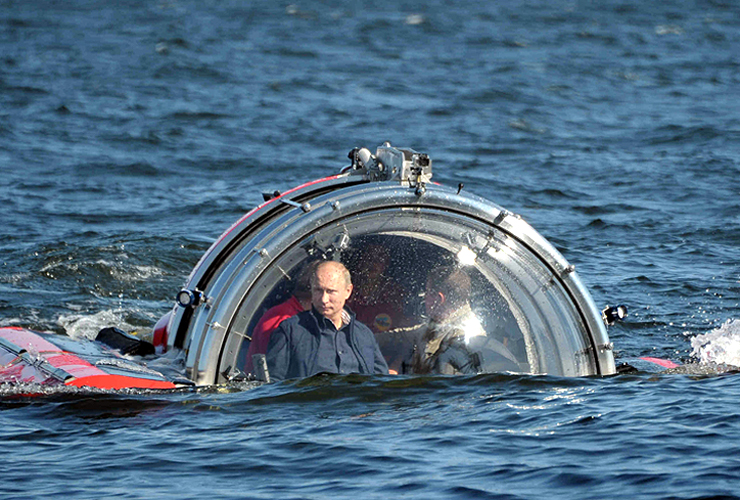Putin and the Panama Papers: The Kremlin's web of cash
A look at the secret deals that have made the Russian President's friends 'fabulously wealthy'

A free daily email with the biggest news stories of the day – and the best features from TheWeek.com
You are now subscribed
Your newsletter sign-up was successful
Reports this morning say a network of secret offshore deals and vast loans worth $2bn (£1.4bn) have "laid a trail" to Russian President Vladimir Putin, making his family, friends and associates "fabulously wealthy".
What is being alleged in brief?
At the heart of the allegations, published in The Guardian, is a billion-dollar money-laundering ring run by Bank Rossiya, which is headed by Yuri Kovalchuk, a "personal banker" for senior Moscow officials including Putin, according to the US.
The Week
Escape your echo chamber. Get the facts behind the news, plus analysis from multiple perspectives.

Sign up for The Week's Free Newsletters
From our morning news briefing to a weekly Good News Newsletter, get the best of The Week delivered directly to your inbox.
From our morning news briefing to a weekly Good News Newsletter, get the best of The Week delivered directly to your inbox.
The BBC says money has been channelled through offshore companies which have profited from "fake share transactions, bogus consulting deals, un-commercial loans and the purchase of under-priced assets".
Where does Putin come in?
Although Putin is not directly named in the paperwork, his best friend, concert cellist Sergei Roldugin, is the pivotal figure.
Roldugin, who has known Putin since they were teenagers and is godfather to his daughter, Maria, hid his connection to the Russian President when he set up the key bank accounts for the operation. He has since has pocketed hundreds of millions of dollars in profits from the deals.
A free daily email with the biggest news stories of the day – and the best features from TheWeek.com
However, documents from his companies state that: "The company is a corporate screen established principally to protect the identity and confidentiality of the ultimate beneficial owner of the company."
That, together with the fact Roldugin has repeatedly denied he is a businessman, has raised suspicion that he is simply acting as a front for someone else.
What sort of suspicious deals have taken place?
One of the offshore companies, International Media Overseas, borrowed $6m (£4.2m) in 2007 and had the loan written off for just $1 three months later.
In 2011, another deal saw International Media Overseas snap up the rights, including interest and repayments, to a $200m (£140m) loan. The company paid just a single dollar, even though the annual interest payments alone were worth $8m (£5.6m).
Lawyer Andrew Mitchell, one of the UK's leading experts on money laundering, told the BBC the deals are highly suspicious. "There can't be a commercial basis for transferring $200m and the rights to $8m a year for a dollar," he said.
Why is Putin being linked to all of this?
The President’s name does not appear in any of the paperwork, but The Guardian’s Luke Harding says the deals, which have made members of his close circle "fabulously wealthy", could not have been secured "without his patronage".
For instance, says the Daily Telegraph, prominent Russian names in the papers include brothers Arkady and Boris Rotenberg, judo partners of Putin who have amassed fortunes during his 15 years in power.